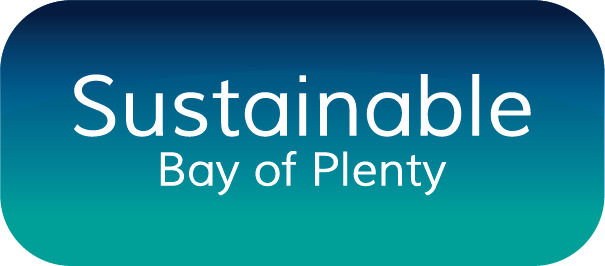We’ll come back to this important topic in more detail at a later date, but this recent article (yes, paywalled) makes it clear we all need to get on the same page around the issue of CO2 targets and Tauranga City Council’s plans.
Here is the key section of this Bay Times article:
Robson said there was “almost no mention of emissions” in the Long-term Plan, which was “one of the biggest topics in the country”. “Tauranga City Council and its current plan will not deliver central government’s requirement for carbon zero by 2050.”
Commission chairwoman Anne Tolley told the Bay of Plenty Times the Long-term Plan delivered $1.9 billion of transport initiatives to encourage a mode shift from private vehicles to public transport, cycling and walking, and to help people move around the city and improve connections.
“That mode change will also have a major impact on carbon emissions.”
That comment from Commissioner Tolley paints a picture that $1.9 billion is being invested between 2021 and 2031 to get major modal shift and emission reductions. That simply isn’t true.
At the heart of TCC’s 2021 Long Term Plan is the “Connected Centres” plan developed by UFTI (the SmartGrowth Urban Form & Transport Initiative). Despite the name, this is the same old growth plan we’ve had for years, comprising more urban sprawl along the coast and up the Kaimai, without any plan for a rapid transit system to connect those suburbs.
When you dig into the Long Term Plan and the Transport System Plan that lies behind it, you find 57% ($1.1 billion) of what is being planned to spend on transport is going on “growth” projects. And that doesn’t include the $200 million for Hewletts Rd-Totara St and Turret Rd-15 Ave projects.
While almost all the projects are described as ‘multi-modal’, it is important to look at what the projects will actually deliver. Specifically, what is the impact on CO2 emissions? This is critically important, because transport comprises 61% of Tauranga’s carbon footprint.
The first thing you find is that Tauranga has no emissions targets, or any climate change plan, or even an environmental or sustainability strategy. What’s more, there are no staff at Tauranga City Council tasked with dealing with those issues, which makes it hard to even start the conversation.
Luckily, other cities have already done the hard work. Auckland has found that in order to meet its C40 target, it needs to cut transport emissions by 64% by 2030. Wellington has an overall goal of being Zero Carbon by 2040 and has just increased to 40% the weighting given to ‘carbon emissions and mode shift’ in its big transport plan.
Meanwhile, Tauranga City Council has signed up to a regional plan to reduce transport emissions by 25% by 2030, without any clear idea of how to make that happen. Despite the whole plan being based around Tauranga! There’s not even any extra spending on bus services over the next six years.
And here is what TCC said last month in a submission to the Ministry of Transport Green Paper “Transport Emissions: Pathways to Net Zero by 2050“:
“With regard to ‘Principle 2: We need to focus on moving to a zero carbon transport system, rather than offsetting emissions’ (page 10), TCC submits that this might be unachievable by 2050 in some circumstances. … Emissions modelling prepared for the Western Bay of Plenty Transport System Plan suggests that moving to a zero carbon transport system is unachievable in a 2050 timescale. Because of this, a plan for offsetting transport emissions will also need to be developed.”
So not only has TCC got no climate change plan, or any science-based targets for its transport plan, but it has already waved the white flag and said meeting the government’s 2050 zero carbon target is “unachievable”.
Maybe that’s what Tauranga residents want. Maybe the current government is happy to have signed up to the growth plan that set TCC off down that track – a plan that in TCC’s own words makes their 2050 zero carbon target “unachievable”. Maybe the public shouldn’t be asked about any of this.
However that’s not what we think. And based on recent NZ surveys, we don’t think most Tauranga residents would agree either.
So we have called on TCC and the SmartGrowth partners and the government to rethink their UFTI plan and revamp the Long Term Plan, to put science-based emission reductions and a more accessible transport system as the top priorities, ahead of growth.
And most important of all, we ask Tauranga City Council to walk the talk and engage with its residents about this issue. Locals will have their say, and we think it’s better they have it now, before Council spends their money and locks in a high carbon future.

What a not funny story it sounds like a nursery rhyme where the characters go round and round about nothing in particular!
Maybe TCC doesn’t know that the community really does care, and that we are tired of meaningless words that cost a lot but insult our intelligence and our efforts to get informed debate.
Thank you for your effort to track this information on our behalf. It’s a sad nursery rhyme.
The fine sounding statement in 2020 by Tauranga Councils to cut emissions 50% by 2031 must be some sort of a joke – so laugh in despair ! Actually emissions have increased by over 20%. Repeating the same solution that caused the problem in the first place. Issuing evasive meaningless diatribe and rubber stamping expenditure seems very fashionable, best suited for commercial gain, vested interests , oil and motor transport industries. powerful monopolies and corporations, with the greater public good hardly a priority. These days, Accountability and Responsibility for Council outcomes is so diluted as to be almost non- existent. is it bad luck, incompetence or the wrong people pulling the strings?